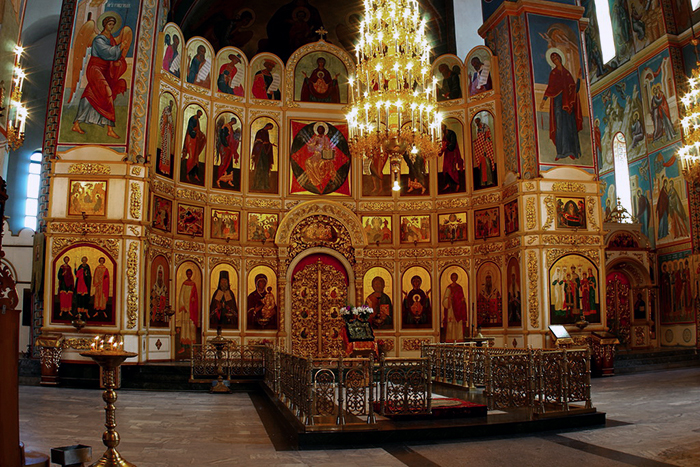
Ref. Acts 2: 5-11
“We hear them telling in our own tongues the mighty works of God.” What an amazing feeling that must have been for the people in Jerusalem on that first Pentecost to hear the Gospel of Jesus Christ in their own language! People who didn’t speak Hebrew, or Aramaic or Greek, the predominant languages of the Jewish world at that time, heard the message of salvation in a language that they could understand.
One of the great challenges in the church is getting the message into a language that people understand. For those who are Greek Orthodox, this is not the perennial battle of do we offer the services in Greek or English? In fact, today’s message is not about the spoken language of worship, but the unspoken languages, many of them, that are needed, in order to spread the message of Christ to everyone.
It is important for the church, and for each member of the church, to be “multi-lingual,” to be able to speak more than one language. Here are some examples of the various languages of the church:
The language of prayer. This is perhaps the toughest language to learn. It involves speaking to an unseen God. Do we “think” prayer? Do we “pray out loud?” Do we know how to pray with others? Do we pray from a book or from the heart? Or a combination? The language of prayer includes all of these things.
The language of worship. There is a certain “language” to worship. This language includes singing, and not feeling self-conscious about it. It includes making gestures, like the sign of the cross, lifting up hands, bowing heads. This is a language in which we praise God, and we do it in the context of community. The language of worship is a language we share collectively.
The languages of community. There are many languages that are spoken in a “community.” And there are many communities to which we belong. There are communities of marriage, family, friendships, work environments, and churches. And in these communities, there are many languages: there is a language of teaching, a language of listening, the language of presence (just “being” with someone), and the language of “empathy.”

In a church community, there are many languages used to present the Gospel. The language of summer camp is a lot different than the language spoken at the seniors’ group. Kids at summer camp learn the Gospel through water balloons and canoes, while at the Bible study, the Gospel is communicated through devotion and discussion. There are many languages within Sunday school, as the three year-old will learn the Gospel differently than the high school student.
The language of love. This is one of the most beautiful yet complex languages. Because people give and receive love in different ways and with different preferences. For those who are married, I encourage you to read the book “The Five Love Languages” by Gary Chapman. It will give you great insight on how two people might really love each other but speak a different language of love. There are different versions for single people and for children and teenagers.
The language at the end of life. This is perhaps the most difficult language to speak and very few of us speak it well. Many people at the end of life speak a language about squeezing every minute out of life and cheating death, rather than speaking about and encouraging the entrance into eternal life. Those who speak this language poorly are sometimes judged as having no faith. And those who do speak it well are sometimes judged as fatalistic. This language in particular is one that we all need to speak better.

The Church is supposed to speak all the language—that’s why a thriving church community has not only a good liturgical (or worship) life, but has a vibrant Sunday school, an effective young adult program, a strong youth group, a good Bible study groups, a solid choir, a group for seniors and a group that specializes in outreach. Because everyone speaks a different language and needs to hear the Gospel in “their own” language. If this church is supposed to speak all the languages, then it is important that the members of the church each learn a few of these languages. Because THESE are the languages in which the Gospel is heard. Thus, we must translate the Gospel into these languages, so that it can be heard by all.
Now the Apostles of Christ are clothed with power from on high; for the Comforter renews them and is renewed in them, by a mystical renewal of knowledge. And preaching in those strange and exalted words, they instruct us to worship the eternal and simple nature in three hypostases of God the benefactor of all. Therefore, since we have been illumined by their teachings, let us worship Father, Son and Spirit, and let us earnestly pray for the salvation of our souls. (From the Aposticha of the Vespers of the Descent of the Holy Spirit on Pentecost, Trans. by Fr. Seraphim Dedes)
Make it a goal to learn as many “languages” so that you are in the best position to spread the Gospel to the most people in the diverse ways that they will “hear” it.



